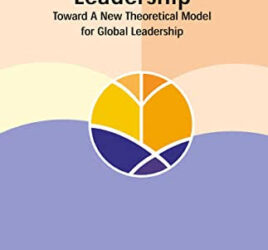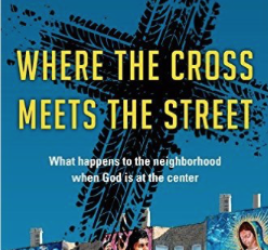 A compilation of 13 papers presented at the fourth ATS (Asia Theological Seminary) Theological Forum, the book The Church and Poverty in Asia represents a broad range of evangelical thought and practice in the Philippines. Based on Mary’s song from Luke 1:53, the conference’s theme was, “He has filled the hungry with good things.” In response, presenters were asked to answer the question, “What is to be our theology of poverty and how are we to make our theology actionable in a fallen world filled with need?”[1] The book is divided in two parts, the first wrestling with the theological and theoretical challenge and the latter discussing best practices of working among the poor.
A compilation of 13 papers presented at the fourth ATS (Asia Theological Seminary) Theological Forum, the book The Church and Poverty in Asia represents a broad range of evangelical thought and practice in the Philippines. Based on Mary’s song from Luke 1:53, the conference’s theme was, “He has filled the hungry with good things.” In response, presenters were asked to answer the question, “What is to be our theology of poverty and how are we to make our theology actionable in a fallen world filled with need?”[1] The book is divided in two parts, the first wrestling with the theological and theoretical challenge and the latter discussing best practices of working among the poor.
It was a real joy to get a hold of this book and several others in the series during published by OMF Literature my recent visit to ATS. I had been looking for Asian resources by Asian thinkers and practitioners and have found the Philippines to be a great source. These books are sadly not available on sites like Amazon and therefore are hard to find. The find of a series of books with numerous Asian writers is like striking gold!
In the opening chapter, former professor at both ATS and Regent College Charles Ringma explores what evangelicals can learn from liberation theologians. Rather than just reacting to and rejecting the Latin American movement, Ringma believes “that these theologians can help us, as Evangelicals, to deepen our understanding of and commitment to the poor.”[2] Ringma takes a brief look at the biblical perspective of the poor, the church’s historic service to the poor, the modern Lausanne Covenant’s references to social justice (or lack thereof), the Ecumenical Movement’s origins of “the concept of missio Dei,”[3] and the social teaching of the Catholic Church. Ringma then critiques the evangelical church’s practice in serving the poor, after which he delves more deeply into liberation theology and what can be learned from them. Six points of consideration are drawn out from the challenge liberation theologians presents to evangelicals. Even though the two camps usually do not meet, Ringma has created a virtual dialogue between both sides.
This is just one example on one topic of the intellectual and practical challenges presented in this fourth publication of the series published by OMF Literature Inc. By no means does it reflect an endorsement either of liberation theology. At the end of the book, and excerpt has been added from the ATS position paper on liberation theology which summarizes the strengths and weaknesses of the movement from an evangelical perspective. I found this to be a helpful resource as evangelicals involved in social activity can find themselves being criticized as liberals.
The depth and breadth of the collection of discussion papers preserved in The Church and Poverty in Asia is too large to engage with in this short review. I am glad, though, to have found an excellent source of Asian theological publications at ATS. I intend to stay in touch and get new books as they become available. Unfortunately, the web site www.omflit.com shows this book (and many others) to be out of stock. Despite what the site says, this series is not available in Kindle or eBook versions either. The only way to order is to email theoforum@mail.ats.ph. There is a real need to make Asian theological resources more accessible online.
By Jacob Bloemberg
[1] Lee Wanak, ed. The Church and Poverty in Asia (Manila, Philippines: OMF Literature Inc., 2008), 1.
[2] Ibid., 7.
[3] Ibid., 30.



